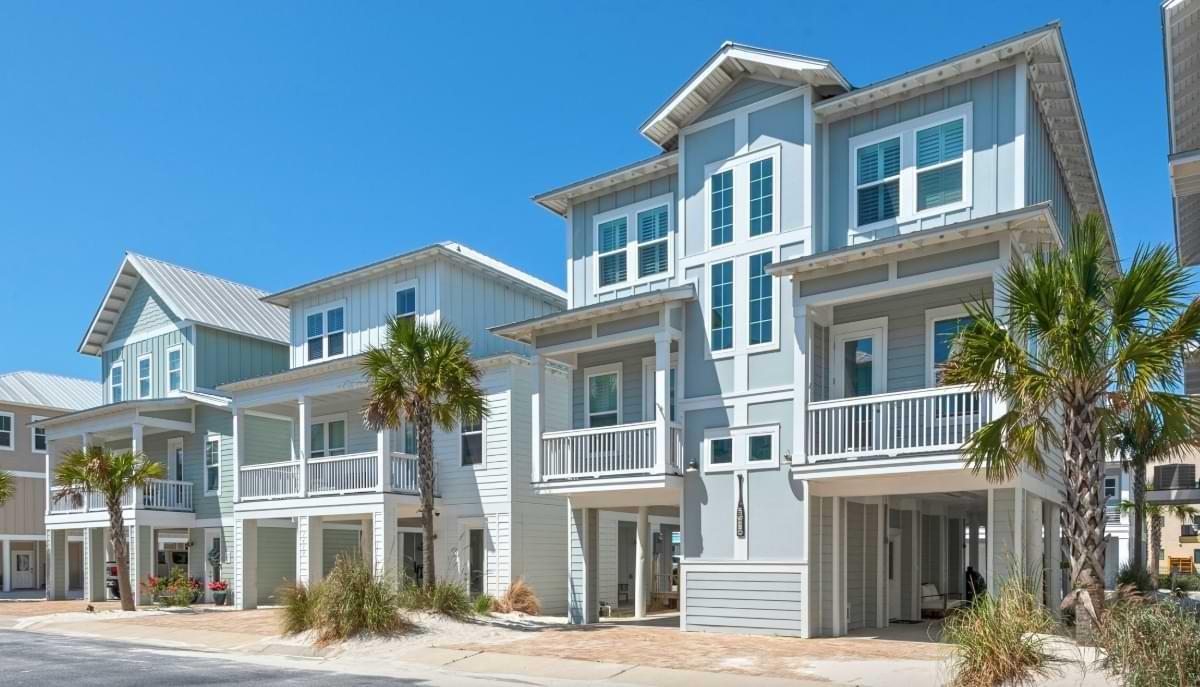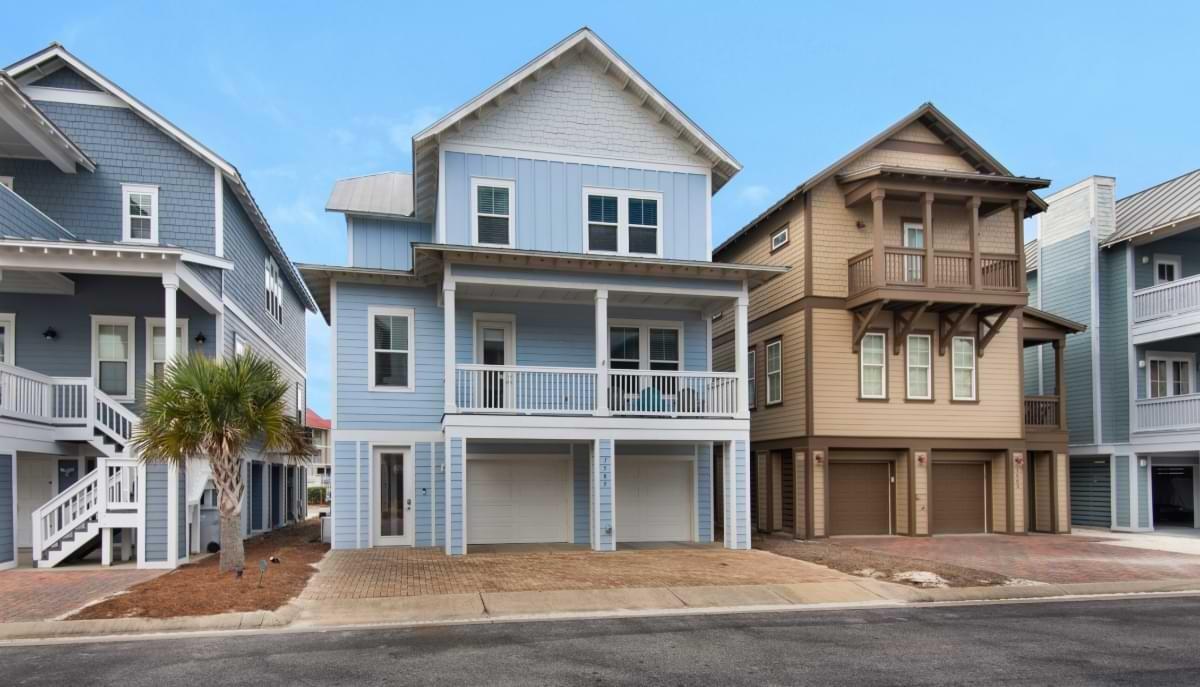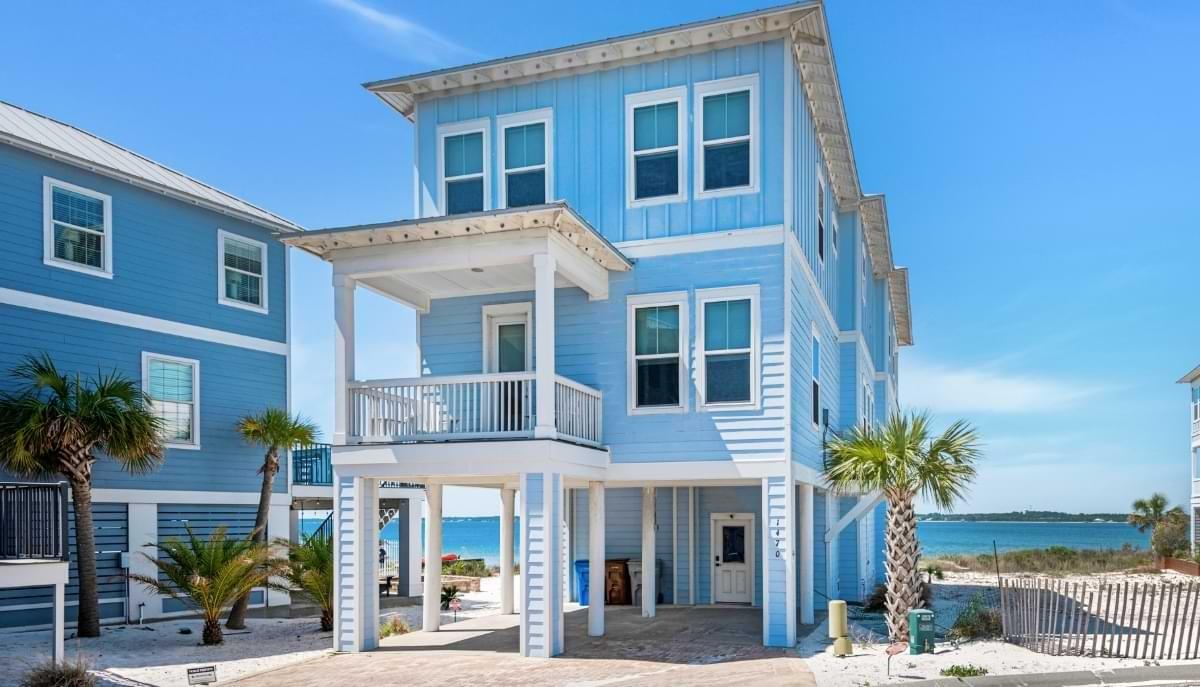From weekend guests to long-term tenants, we'll walk you through the perks, challenges, and key details of turning your second home into a profitable short-term or long-term rental.
If you have a second home sitting empty in snowy Colorado, tucked into the beautiful nature of Tennessee, or overlooking the stunning beaches of the Gulf Coast, you could start generating passive income by turning it into a short-term or long-term rental.
Sounds like a good idea? In this blog, I'll walk you through the key differences and perks of short-term and long-term rentals so you can figure out what works best for you and your place.
A little taste of what's ahead:
At Navarre Beach Properties, we've spent years managing properties right here in Navarre Beach—and we know exactly what it takes to help them thrive. And we're not shy about sharing what we've learned along the way!
I suggest you check our blog, which is packed with expert tips on professional property management—from smart strategies to make your rental stand out in a competitive market, to practical ways to boost your income and even a crash course on everything you need to know about managing a vacation home in Navarre Beach.
Ready to break it down? Let's go.

What is a Short-Term Rental?
Short-term rentals, commonly referred to as "vacation rentals", are defined as furnished residential properties that are typically rented out for 30 days or shorter. Sometimes, longer stays are permitted depending on local jurisdiction and owner preference.
Popular listing sites for short-term rentals are Airbnb, Vrbo, and Booking.com. Owners of short-term rentals can choose to either self-manage their rental or outsource property management to a third-party vacation rental company.
Benefits of Short-Term/Vacation Rentals
1. Potential for High Profits
One of the many reasons that vacation rentals have become popular is due to their high earning potential. Unlike long-term leases, short-term nightly rental rates can fluctuate depending on seasonality. For example, rates for a beach house tend to be higher during the summer months but lower during the winter months. You can charge higher rates based on seasonality, holidays, and events.
2. Personal Usage of Rental
Another benefit of short-term or vacation rentals is the option for owners to have access to the property for personal use. Since short-term rentals typically have higher turnover, there are gaps between guest stays where owners may reserve their own property for last-minute getaways or planned celebrations.
3. Tax Breaks and Deductions
On the financial side of short-term rental ownership, property management, maintenance, and cleaning fees can add up. On top of that, owners face administrative costs for services like marketing and commissions. Luckily, some owners can write off some of these expenses and reduce tax responsibility.
4. Outsourcing Property Management
One of the best things about short-term rentals is that you can hand off the day-to-day work to a property management company. At Navarre Beach Properties, for example, our team takes care of everything, from cleaning and maintenance to marketing and guest services, so you don't have to lift a finger.
Challenges of Short-Term Rentals
1. Changes in Income
While short-term vacation rentals have high earning potential, bookings may also fluctuate. Economic conditions, slower seasons, and weather may impact your bookings. Adjusting rates to compensate for potential losses due to slow seasons may be challenging.
2. Additional Maintenance
One drawback with a higher turnover of guests could be the additional cleaning and maintenance responsibilities. Guests also hold properties to a certain standard, and they aren't afraid to leave negative reviews or complain about the condition of rentals.
Cleaning and maintaining a rental doesn't have to be your burden. When you partner with a property management company like ours, your property is in the hands of professional cleaners and skilled maintenance pros who'll keep it in top shape.
3. Short-Term Rental Regulations
With the rise of short-term rentals like Airbnb and Vrbo properties, some communities seek to block short-term rentals from popping up in their neighborhoods. It's always wise to check with local jurisdictions, HOAs, and other parties to be sure that renting out your property on a short-term basis is welcome.
Quick Takeaways Before You List Your Property
- Short-term rentals can bring in solid income, especially during peak seasons and holidays.
- You can still sneak in some personal getaway time at your own place.
- Property management companies can handle the messy stuff like cleaning, maintenance, and guest drama.
- Just keep in mind: income can dip in slower seasons, and more guests = more wear and tear.
- Check your local rules and HOA guidelines before jumping in.

What is a Long-Term Rental?
Long-term rentals are usually more suited for residential use. These rentals are typically rented for six months, one year, or longer with lease agreements.
Long-term rentals usually aren't furnished, and owners rent them out at a fixed monthly rate. They're often self-managed, with the owner acting as the landlord, but you can also outsource the upkeep to a local property management company if that's more your style.
Benefits of Long-Term Rentals
1. Less Turnover and Maintenance
One of the upsides of longer-term rentals is that tenants usually secure leases of at least six months or more, so you aren't responsible for multiple cleans each week or minor maintenance. Tenants can even handle lawn care in some cases. Also, once you secure a tenant, you don't have to worry about marketing your property and keeping it booked as often.
2. More Steady Income
A long-term rental may be the best situation for property owners looking for slower and steadier income. Typically, tenants pay for their own utilities like electricity, WIFI, and water, and they aren't affected by seasonality. With long-term leases, you can depend on a more permanent income from the resident for the duration of their lease.
3. Security Deposit for Potential Damage
Sometimes, damage can happen when tenants stay at your property for longer. While short-term rentals may have insurance policies in place, residents usually pay a security deposit equal to one month of rent in the event of damage.
Once the lease ends, tenants may receive their security deposit back, but it provides owners with peace of mind during the lease.
Challenges of Long-Term Rentals
1. No Personal Property Usage
A downside to renting your property out on a long-term basis is that you can't use the property for personal enjoyment during the duration of the lease. If you were planning a beach getaway, celebration, or family gathering at the rental, you wouldn't be able to do so. It's essential to evaluate how much you value the use of the property and how often you plan to stay there.
2. Higher Risk of Damage / Tenant Issues
Finding the right tenant can be tricky—especially with long-term rentals. With short-term stays, it's easier to have a property management company handle guest relations and sort out any issues that come up. But when one person is living in your home for an extended period, you could end up dealing with ongoing concerns, complaints, or even damage. Longer leases usually mean more wear and tear on the property.
3. Lower Income Potential
As I mentioned above, long-term rentals are usually rented out at a fixed rate for the duration of the lease. Property owners cannot change or increase rates based on seasonality or other variables. A property could have the potential to have a few bookings per month during a busy season for over a thousand dollars each, but on a long-term lease, it would only be subject to that monthly rate.
Long-Term Rental: The Bottom Line
- Less turnover means fewer headaches and less cleaning.
- Income is steady and predictable, no matter the season.
- Tenants usually cover utilities—and maybe even mow the lawn.
- You won't be able to use the property while it's rented out.
- One tenant for a long stretch means more wear and tear if they're not the best fit.
- You're locked into a monthly rate, so there's no bump during high season.

Vacation Rental Management Made Simple
Managing a Navarre Beach vacation rental can feel overwhelming—but it doesn't have to. At Navarre Beach Properties, we've been doing this for years, with proven systems to keep your property booked and profitable.
Get a free rental estimate on our website and see how partnering with a local pro can make all the difference.


